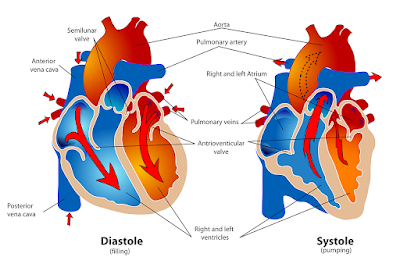5 Heart-Healthy Diets for a Stronger Cardiovascular System
Maintaining a healthy heart is essential for overall well-being, and adopting a heart-healthy diet is a crucial step in preventing cardiovascular disease. In this article, we will explore five unique heart diet types that can significantly reduce the risk of heart-related conditions. By following these dietary guidelines and making informed food choices, you can promote a stronger cardiovascular system and improve your overall health.
5 Heart-Healthy Diets for a Stronger Cardiovascular System
1. The Flavorful Mediterranean Diet
Backed by scientific research, the Mediterranean diet has gained recognition for its effectiveness in reducing the risk of heart disease and mortality by up to 40%. This diet focuses on a plant-based approach, emphasizing the consumption of vegetables, fruits, whole grains, seafood, and nuts. It encourages limited or no intake of sugary foods, red meat, and processed meats. Modest consumption of eggs, low-fat dairy, and poultry is still allowed, making it a flexible and delicious option for heart health.
2. DASH: The Hypertension Fighter
Designed to prevent and manage hypertension, the Dietary Approaches to Stop Hypertension (DASH) diet offers a comprehensive approach to heart health. By prioritizing whole grains, vegetables, fruits, and low-fat dairy or lean meats, this diet helps maintain normal blood pressure levels, reducing the risk of heart disease. To adhere to the DASH diet, it's important to limit the consumption of red meat, sugar, and salt, as they can negatively impact cardiovascular health.
3. The Nourishing Vegetarian Diet
The vegetarian diet emphasizes the abundant consumption of fruits, vegetables, whole grains, and plant-based protein sources. It provides essential nutrients, including fiber, vitamins, minerals, and antioxidants, which promote heart health. Depending on the specific type of vegetarian diet followed, individuals may incorporate eggs and dairy products. Studies have shown that a vegetarian diet can significantly reduce the risk of heart disease and mortality, making it a favorable choice for those aiming to enhance their cardiovascular well-being.
4. TLC: Dietary and Lifestyle Modifications
The Therapeutic Lifestyle Changes (TLC) diet, developed by the National Institutes of Health (NIH), aims to lower the risk of heart disease and stroke through dietary adjustments. The key principles of this diet include managing fat intake to account for 25-35% of daily calorie requirements, limiting saturated fat to no more than 7% of daily calories, restricting cholesterol intake to 200 mg per day, consuming 10-25 grams of soluble fiber daily, and incorporating two grams of stanols and sterols (plant dietary fiber) into the diet. Additionally, maintaining a healthy weight through portion control is crucial for overall heart health.
5. The Beneficial Low-Carbohydrate Diet
A low-carbohydrate diet focuses on reducing the consumption of carbohydrates such as rice, bread, potatoes, and sugary foods. By doing so, this diet can effectively address risk factors associated with heart disease, including obesity, high blood pressure, and high cholesterol. While carbohydrates are limited, the diet encourages the intake of protein, healthy fats, and non-starchy vegetables. It provides an alternative approach to managing heart health and can be tailored to individual needs.
Conclusion
Adopting a heart-healthy diet is an integral part of preventing cardiovascular disease and maintaining optimal heart function. The five unique diet types mentioned above offer diverse approaches to promoting heart health, each with its own set of benefits. Whether you choose the flavorful Mediterranean diet, the hypertension-fighting DASH diet, the nourishing vegetarian diet, the TLC diet's dietary and lifestyle modifications, or the low-carbohydrate diet, making conscious food choices can significantly improve your cardiovascular well-being. Combine these diets with regular exercise, stress management, and adequate rest for a comprehensive approach to a healthier heart and a better quality of life. Remember, a strong heart begins with the right choices on your plate.
